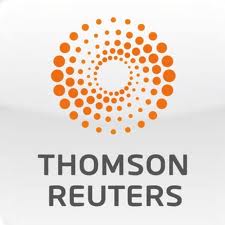
Indeed, we’ve long criticized Reuters for failing to call terror by its name. But that’s not all. Over the years, we’ve highlighted biased Reuters articles, headlines, calendar photos, fauxtography, and a multitude of other transgressions.
Now, an academic study published in the Journal of Applied Business Research has found that Reuters coverage of the Middle East conflict is systematically tainted by propaganda and influences readers to side with the Palestinians and Arab states against Israel. Henry Silverman writes on PR Web:
Researcher Henry Silverman of Roosevelt University analyzed a sample of fifty news-oriented articles published on the Reuters.com websites for the use of classic propaganda techniques, logical fallacies and violations of the Reuters Handbook of Journalism, a manual of guiding ethical principles for the company’s journalists. Across the articles, over 1,100 occurrences of propaganda, fallacies and handbook violations in 41 categories were identified and classified.
In the second part of the study, a group of thirty-three university students were surveyed, before and after reading the articles, to assess their attitudes and motivation to support one or the other belligerent parties in the Middle East conflict, i.e., the Palestinians/Arabs or the Israelis. The study found that on average, subject sentiment shifted significantly following the readings in favor of the Arabs and that this shift was associated with particular propaganda techniques and logical fallacies appearing in the stories.
“Governments have long used propaganda to whip up public support during wartime and to demonize enemies”, says Silverman. “Reuters is adopting these same techniques to covertly shape audience perceptions and opinion in violation of its corporate governance charter.” Silverman points out that this is particularly troubling since “the news agency promotes itself as a paragon of accurate and impartial reporting and its stories are read by millions of people who are led to believe they are being provided objective facts”.

Reuters operates in over 200 cities in 94 countries in about 20 languages, and is picked up by many media outlets for foreign news stories. For such an organization to be producing anti-Israel propaganda on a global scale is extremely serious.
You can read the full study here (PDF).
Will this be what pushes Reuters over the finish line as a genuine contender for the Dishonest Reporter Award? All will be revealed very soon.
Image: CC BY-SA HonestReporting.com, flickr/Samuel M. Livingston.
Source material can be found at this site.









